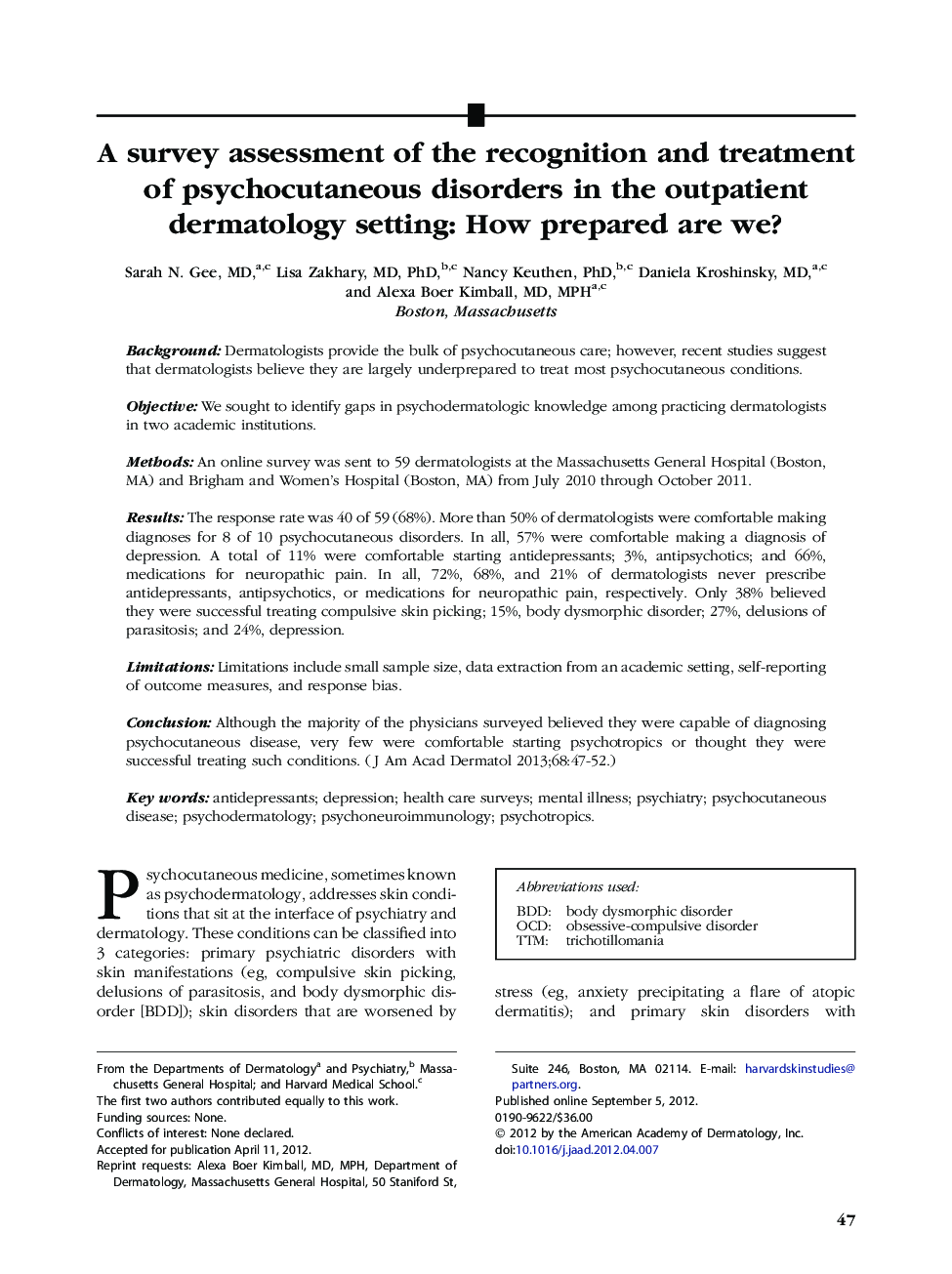| Article ID | Journal | Published Year | Pages | File Type |
|---|---|---|---|---|
| 3206535 | Journal of the American Academy of Dermatology | 2013 | 6 Pages |
BackgroundDermatologists provide the bulk of psychocutaneous care; however, recent studies suggest that dermatologists believe they are largely underprepared to treat most psychocutaneous conditions.ObjectiveWe sought to identify gaps in psychodermatologic knowledge among practicing dermatologists in two academic institutions.MethodsAn online survey was sent to 59 dermatologists at the Massachusetts General Hospital (Boston, MA) and Brigham and Women's Hospital (Boston, MA) from July 2010 through October 2011.ResultsThe response rate was 40 of 59 (68%). More than 50% of dermatologists were comfortable making diagnoses for 8 of 10 psychocutaneous disorders. In all, 57% were comfortable making a diagnosis of depression. A total of 11% were comfortable starting antidepressants; 3%, antipsychotics; and 66%, medications for neuropathic pain. In all, 72%, 68%, and 21% of dermatologists never prescribe antidepressants, antipsychotics, or medications for neuropathic pain, respectively. Only 38% believed they were successful treating compulsive skin picking; 15%, body dysmorphic disorder; 27%, delusions of parasitosis; and 24%, depression.LimitationsLimitations include small sample size, data extraction from an academic setting, self-reporting of outcome measures, and response bias.ConclusionAlthough the majority of the physicians surveyed believed they were capable of diagnosing psychocutaneous disease, very few were comfortable starting psychotropics or thought they were successful treating such conditions.
